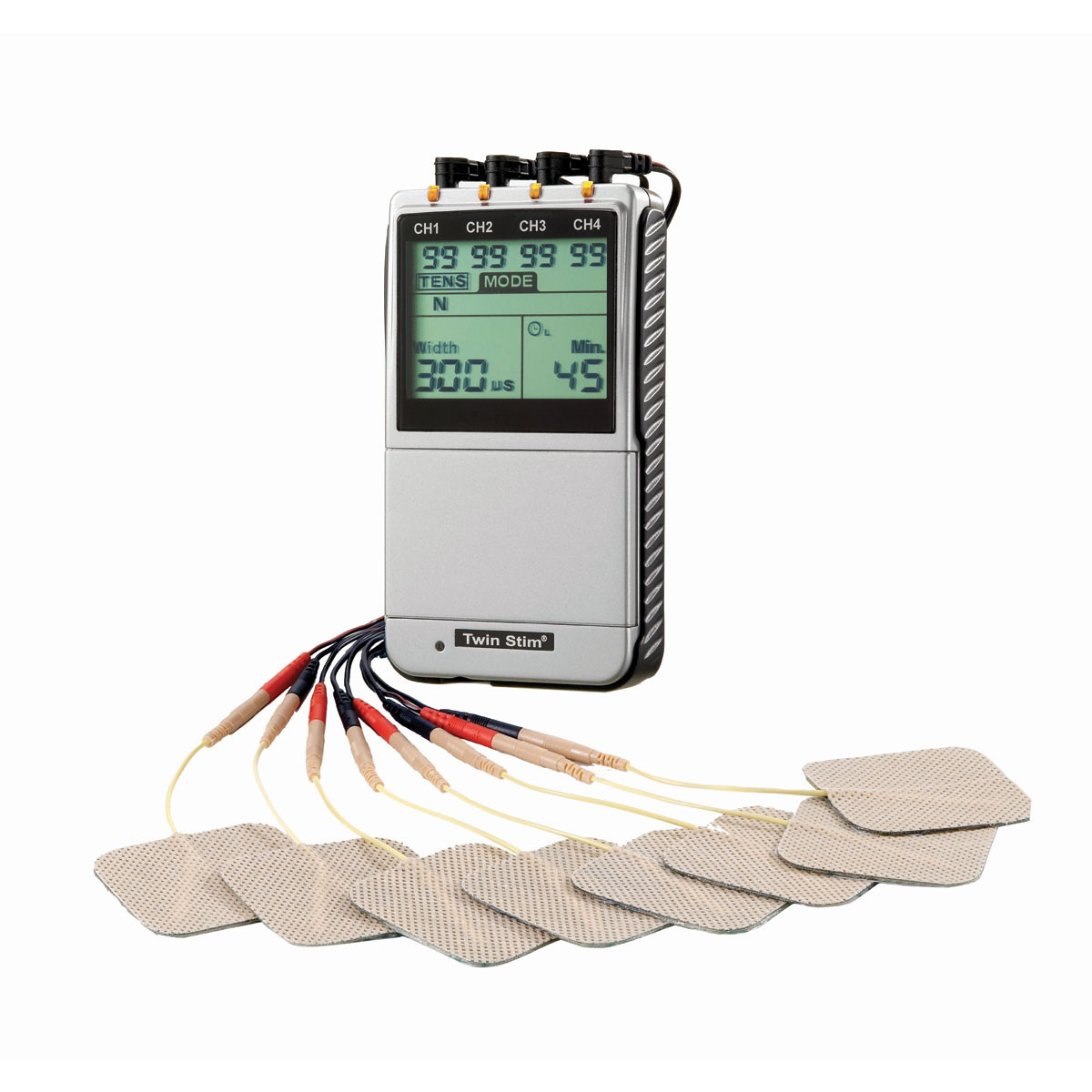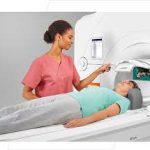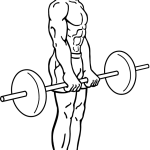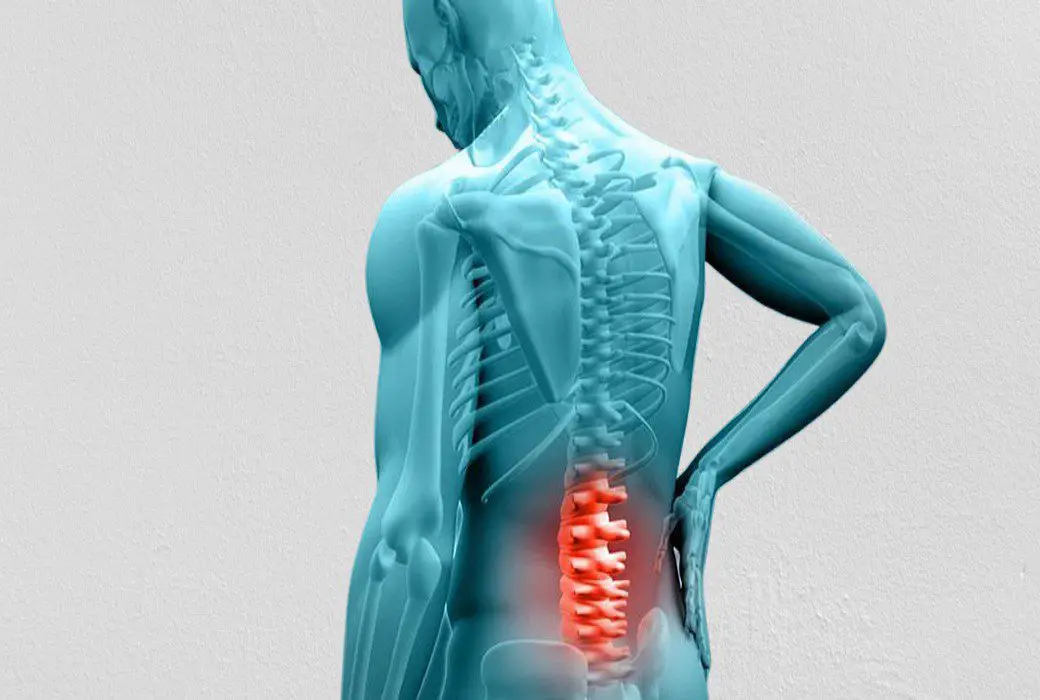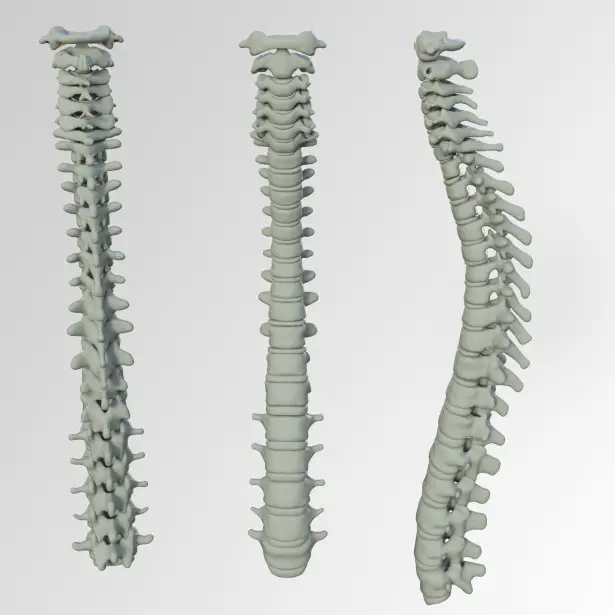A Tens unit, also known as a Transcutaneous Electrical Nerve Stimulation unit, is a form of alternative medicine that can be beneficial for those who suffer from herniated discs. The Tens unit works by sending electrical pulses through the skin to the affected area in order to reduce pain and inflammation.
This type of therapy may help with herniated discs by reducing the pressure on the nerve root, allowing for improved function and mobility. It is important to note that this type of treatment should be used in conjunction with other treatments prescribed by a medical professional.
Additionally, it is important to follow all instructions provided with the device and ensure that it is used correctly in order to maximize its effectiveness.
What Does a TENS Unit Do?
A TENS unit is a small device used to treat pain. It stands for Transcutaneous Electrical Nerve Stimulation and works by sending electrical signals through the skin to the nerves in order to reduce pain. The device itself is quite portable, making it an ideal choice for those looking for quick relief from chronic or acute back pain.
The TENS unit works by stimulating the sensory nerves in order to temporarily block the transmission of pain signals. This can be done either through manual control via buttons on the device or through a pre-programmed program that is tailored to your specific needs.
Additionally, many modern TENS units come with built-in timers so you can adjust the settings as needed throughout the day. In summary, a TENS unit is an effective way to alleviate back pain without having to take medications or resorting to surgery.
How Much Does a TENS Unit Cost?
A TENS unit is a device used by people to treat pain, reduce muscle spasms, and improve mobility. It stands for Transcutaneous Electrical Nerve Stimulation and uses electrode pads that are placed on the skin near the area of pain such as the back or spine.
The pads emit small electric pulses that help to relax muscles, reduce inflammation and manage pain. The cost of a TENS unit depends on its features and capabilities. Basic models can start at just under $20 while more advanced units with multiple channels and customizable programs may cost up to $400 or more.
For those suffering from chronic or acute back pain or muscle spasms, investing in a TENS unit can be a great way to manage your discomfort without having to rely solely on medications.
What is TENS unit therapy?
A TENS unit (Transcutaneous Electrical Nerve Stimulation) is a small device that uses electrical current to help relieve pain. It works by sending electrical pulses through electrodes which are placed on the skin near the painful area. The electrical pulses radiate out from the electrodes and stimulate nerve fibers, blocking pain signals from reaching the brain. TENS has been found to be especially beneficial for low back pain, sciatica, and other musculoskeletal conditions.
TENS can also reduce inflammation and muscle spasms in some cases. Sessions with a TENS unit typically last 15-20 minutes and can be done several times a day depending on the severity of your condition. There are no known side effects associated with using a TENS unit, making it a safe option for people suffering from chronic pain or acute flare-ups.
What Happens If You Put TENS on Spine?
If you’re considering using TENS (Transcutaneous Electrical Nerve Stimulation) on your spine, it is important that you do so with caution. TENS can be used to help relieve pain in the back and neck area, but if not administered properly, it could cause more harm than good.
When using TENS on your spine, make sure to follow the instructions carefully and adjust the pulse rate and current intensity as needed. Additionally, avoid using the device directly on any areas of the spine that are sensitive or injured. If you experience any discomfort while using a TENS unit on your spine, stop immediately and consult a medical professional for advice.
While TENS can be an effective method of pain relief when used properly, it’s important to remember that it should never replace medical advice or treatment from a qualified doctor or therapist.
Where Should You Not Apply TENS?
TENS, or Transcutaneous Electrical Nerve Stimulation, is a form of electrotherapy used to ease pain. It works by sending electrical signals through the skin to the underlying nerves, which can help to reduce inflammation and increase blood flow.
However, it is important to remember that there are certain places where TENS should not be applied. These include areas with infections such as cuts or open wounds, over the eyes or face, on broken or inflamed skin (especially sunburned), and over any internal organs such as the heart.
Additionally, pregnant women should consult a physician before using TENS therapy in order to ensure safety for both mother and baby. It’s important to discuss your individual case with your doctor before beginning any kind of TENS therapy so that you can receive accurate instructions for its use.
Can TENS Make Back Pain Worse?
TENS, or Transcutaneous Electrical Nerve Stimulation, is a non-invasive and popular method of managing back pain. TENS works by sending electrical pulses to the affected area in order to stimulate the nerves and alleviate pain. While it is generally considered safe and effective, there are some cases where TENS can make back pain worse.
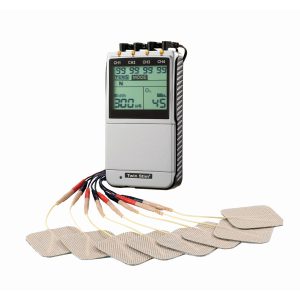
This is often because the electrical pulses are too strong for the patient, causing them to become overly sensitive to touch or movement. Additionally, if the patient does not use TENS correctly, they may be inadvertently worsening their back pain with too much stimulation. To prevent this from happening, it is important that patients follow their doctor’s instructions carefully when using TENS for back pain relief.
Can You Damage Your Nerves with a TENS unit?
Using a TENS (Transcutaneous Electrical Nerve Stimulation) unit is generally considered to be very safe and non-invasive, however there are certain precautions you should take when using one. It is possible to damage your nerves with a TENS unit if the intensity of the electrical current is set too high or if it’s used for an extended period of time. Some people may experience skin irritation or mild discomfort at the site of electrode placement if used for too long.
Additionally, it can increase the risk of nerve damage if the electrodes are placed over an area with poor circulation or tissue damage. It is important to consult your doctor before using a TENS unit and follow the instructions carefully in order to avoid any potential nerve damage.
What are the Disadvantages of TENS therapy?
TENS therapy, or Transcutaneous Electrical Nerve Stimulation, is an effective method of pain relief used by many. It is a non-invasive procedure and works by sending electrical pulses to the affected area. However, it also has some drawbacks that should be taken into consideration before undergoing treatment. Firstly, TENS therapy can be uncomfortable for some people as the electrical current may cause a tingling sensation which can be unpleasant for many.
Additionally, it does not provide a permanent solution for chronic pain and the effects are only temporary. Furthermore, there is a risk of skin irritation that could occur due to the placement of electrodes or if too much current is used in one session. Finally, there are certain medical conditions where TENS therapy should not be used such as pregnancy and heart arrhythmias. In conclusion, while TENS therapy can be beneficial in providing short-term relief from pain, it can have its disadvantages as well and should always be discussed with your doctor before undergoing treatment.
Can You Overdo It With a TENS machine?
Using a TENS machine can be an effective pain management tool. But it’s possible to overdo it when using a TENS machine. When using the device, you should always follow the instructions your healthcare provider gives you and only use it for the recommended period of time. If you are using a TENS machine for the first time or if you are experiencing an increase in pain, consult your healthcare provider before increasing your TENS usage.
In addition, never leave a TENS machine on for long periods of time and make sure to take regular breaks throughout your session. Finally, when beginning treatment with a TENS machine, start on low settings and gradually increase as needed as too much stimulation can be painful and uncomfortable. By following these guidelines, you will ensure that you get the most out of your TENS unit while avoiding any risks associated with overuse or misuse.
How Often Can You Use A Tens Unit On Your Back?
Using a TENS unit on your back can provide relief from chronic or acute pain. Depending on the intensity of the pain and its cause, the frequency of use may vary. Generally speaking, it is best to start with 15 minutes at a time, three times per day. However, if you’re in severe pain, you may need to increase the duration of each session or even add extra sessions throughout the day. You should always follow the advice of your physician when using a TENS unit and make sure not to exceed their recommended usage limits.
If you’re using a TENS unit for preventive purposes, then once every few days is usually enough. Be aware that if used too often for more than an hour per day, it can cause skin irritation and muscle fatigue due to electrical stimulation. So it’s important to stick to your doctor’s recommendations when using a TENS unit and monitor your body responses closely.
Do Chiropractors use TENS units?
Chiropractors do use TENS units in certain circumstances. A TENS, or transcutaneous electrical nerve stimulation, unit is a device that sends electrical impulses through electrodes placed on the skin. These impulses can help to reduce pain and promote muscle relaxation. The chiropractor may use a TENS unit as part of an overall treatment plan for alleviating musculoskeletal pain and restoring range of motion.
Depending on the specific situation, the chiropractor may suggest using a TENS unit at home as well. This could allow for continued relief from pain between sessions with the chiropractor. In some cases, a chiropractor may even recommend purchasing your own TENS unit for use at home. However, it’s important to make sure you understand how to properly use it before doing so, as improper use can result in further injury or discomfort.
Does a TENS Unit Break Up Inflammation?
A TENS (Transcutaneous Electrical Nerve Stimulation) unit is a device used to provide pain relief. It does this by sending low-voltage electrical pulses through electrodes that are attached to the skin near the area of pain. The electrical pulses stimulate the nerves and block pain signals from reaching the brain. This, in turn, can reduce inflammation, which can be beneficial for those suffering from arthritis or other long-term chronic conditions.
Research suggests that TENS units may be effective at temporarily relieving short-term pain and reducing inflammation in some cases. However, they are not designed to break up long-term inflammation and should not be used as a substitute for medical treatment. It is important to discuss any use of a TENS unit with your doctor before trying it out as an alternative treatment option.
Can TENS Machine Make Nerve Pain Worse?
A TENS (Transcutaneous Electrical Nerve Stimulation) machine is a device used to relieve pain. It does this by sending small electrical impulses through electrodes placed on the skin near the area of pain. The impulses help to block the pain signals sent to the brain and can reduce inflammation, helping to alleviate pain symptoms. In some cases, however, a TENS machine can make nerve pain worse.
When used inappropriately or incorrectly, it can further irritate the nerves and cause an increase in sensitivity. This could lead to more intense or frequent episodes of nerve pain. It is important to use a TENS machine correctly and as instructed by a medical professional for best results and safety.
Where Do You Put TENS Pads For A Herniated Disc?
TENS, or Transcutaneous Electrical Nerve Stimulation, is a popular treatment for a herniated disc. The pads of the TENS machine are placed around the affected area to help reduce pain and inflammation caused by the herniated disc. Generally, the pads are placed around the lower back area where the herniated disc is located. It is important to place the pads in a way that will target the affected area specifically, as this will produce better results from the TENS treatment. Depending on where exactly the herniated disc is located, it may be necessary to place one pad higher up in order to cover more area and target specific nerves that can help with reducing pain and inflammation. It is best to work with your doctor or physical therapist when placing these pads to ensure proper placement for maximum results.
Who Should Not Use a TENS unit?
A TENS unit should not be used by those who have a pacemaker, heart rhythm abnormalities, or acute spinal cord injury. It is also not recommended for use on pregnant women or infants. People with skin irritations or open wounds in the area where the TENS electrode pads are to be applied should also refrain from using a TENS unit as it could cause further irritation. Additionally, people with a known allergy to adhesive tape should consult their doctor before using a TENS unit as the electrode pads will require some form of adhesive tape to remain in place during use. Lastly, people suffering from conditions affecting the central nervous system such as spinal stenosis and multiple sclerosis should avoid using a TENS device as its usage may worsen their condition or cause serious harm. While TENS therapy can provide pain relief in many instances, it is important to understand who should not use it and consult your doctor before engaging in any kind of tens therapy.
